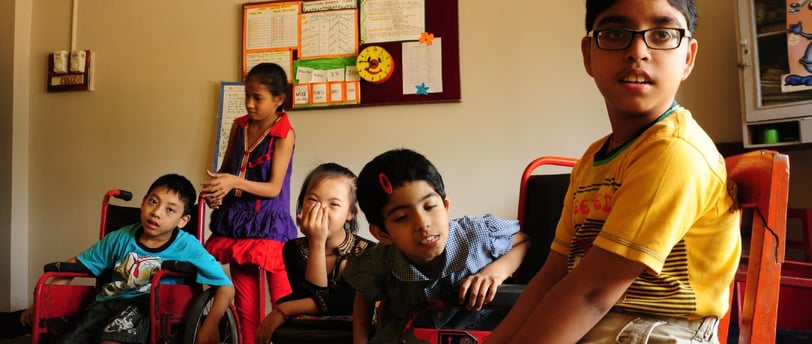Understanding Special Needs Children in India: Challenges and Support Systems
Addressing the challenges faced by special needs children in India requires a multi-faceted approach, including policy enforcement, social awareness, and improved educational and healthcare infrastructure. By fostering an inclusive mindset and implementing effective support systems, India can pave the way for a brighter future for children with special needs.
9/18/20172 min read


Introduction
Children with special needs require extra attention, care, and tailored educational approaches to help them achieve their full potential. In India, millions of children are diagnosed with conditions such as autism, ADHD, Down syndrome, cerebral palsy, dyslexia, and hearing or visual impairments. Despite the progress in awareness and policies, significant challenges persist in ensuring inclusive education, healthcare, and social integration for these children.
Challenges Faced by Special Needs Children in India
Lack of Awareness and Stigma
Many families and communities in India still hold misconceptions about disabilities, leading to social stigma and exclusion. Limited awareness often results in delayed diagnosis and inadequate intervention.Limited Access to Inclusive Education
While the Right to Education (RTE) Act mandates inclusive schooling, many mainstream schools lack the infrastructure, trained staff, and resources to accommodate special needs children effectively.Inadequate Healthcare and Early Intervention
Access to early diagnosis and therapy services, such as speech therapy, occupational therapy, and behavioral intervention, remains limited, especially in rural areas. High costs further restrict families from obtaining necessary medical support.Financial Burden on Families
Raising a child with special needs can be expensive due to the cost of therapies, special education programs, and assistive technologies. Government schemes exist, but many families struggle to navigate the bureaucratic process to avail them.Shortage of Trained Professionals
India faces a shortage of special educators, therapists, and caregivers trained to support special needs children effectively. This gap affects the quality of care and education available to these children.
Support Systems and Government Initiatives
Despite these challenges, several initiatives and organizations are working towards the empowerment of special needs children in India.
Government Policies and Laws
The Rights of Persons with Disabilities (RPWD) Act, 2016 provides legal protection and promotes inclusive education and employment opportunities.
The National Trust Act, 1999 supports persons with autism, cerebral palsy, and other disabilities.
Various state governments offer financial aid, scholarships, and reservations in education for children with disabilities.
Special Schools and Inclusive Education
Many special schools and resource centers cater to children with disabilities, providing customized curricula, therapy, and vocational training. Organizations like the National Institute for the Empowerment of Persons with Intellectual Disabilities (NIEPID) support inclusive education efforts.Therapies and Assistive Technology
Advancements in technology have improved accessibility for special needs children through speech-to-text software, Braille devices, and mobility aids. Therapy centers in urban areas offer physiotherapy, behavioral therapy, and other interventions.Parental Support and Awareness Programs
Several NGOs, such as Action for Autism, Sense India, and Amar Jyoti, provide guidance and support networks for parents, helping them understand their child’s needs and advocate for their rights.
The Way Forward
For India to create a truly inclusive society for special needs children, concerted efforts are required from the government, educators, healthcare providers, and communities. Increasing awareness, strengthening healthcare systems, enhancing teacher training, and making schools and public spaces more accessible are crucial steps.
With the right support, special needs children in India can lead fulfilling lives, contributing meaningfully to society. Families, educators, and policymakers must work together to ensure that every child, regardless of their abilities, has the opportunity to thrive.
Conclusion
Addressing the challenges faced by special needs children in India requires a multi-faceted approach, including policy enforcement, social awareness, and improved educational and healthcare infrastructure. By fostering an inclusive mindset and implementing effective support systems, India can pave the way for a brighter future for children with special needs.
Care
Compassionate healthcare for those in need.
Trust
Support
support@vcarecharitabletrust.com
+91 7700019520
© 2025 Vcare Charitable Trust & Hospitals. All Rights Reserved.
